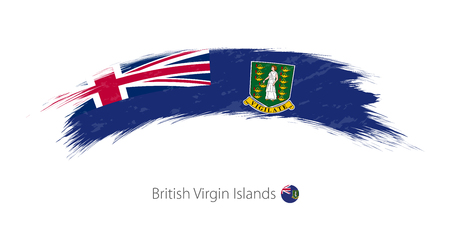Understanding Commercial Vehicle Insurance in the UK
Commercial vehicle insurance is a specific type of cover designed for vehicles used for business purposes, whether you operate a single van for local deliveries or manage an entire fleet across the UK. In England, Wales, Scotland, and Northern Ireland, this insurance is not just an option—it is a legal requirement for anyone using vehicles as part of their trade. The policy typically covers vehicles such as lorries, vans, taxis, and company cars that are essential to daily operations. Without the correct insurance in place, businesses risk severe penalties and potential disruptions to their operations. For many families running small businesses or tradespeople relying on their vans, understanding commercial vehicle insurance is crucial to protect both livelihoods and assets. The right policy ensures that in the event of an accident, theft, or damage, your business can continue running smoothly without facing hefty financial setbacks.
2. Legal Obligations Across the Four Nations
When operating a commercial vehicle in the United Kingdom, it is essential to understand that legal insurance requirements are set at a national level but administered with slight regional differences across England, Wales, Scotland, and Northern Ireland. At their core, all four nations share a commitment to ensuring public safety and financial responsibility on the roads. However, there are nuances in enforcement and administration that businesses must be aware of.
Minimum Insurance Requirements
The fundamental requirement throughout the UK is that all commercial vehicles must have at least third-party insurance. This covers injuries to others and damage to third-party property. Comprehensive and third-party fire and theft policies offer additional protection but are not legally mandated.
| Region | Minimum Legal Cover | Key Administrative Body | Unique Considerations |
|---|---|---|---|
| England | Third-party only | Driver and Vehicle Licensing Agency (DVLA) | Strict digital records enforcement via Motor Insurance Database (MID) |
| Wales | Third-party only | DVLA | No unique insurance rules; follows Englands model closely |
| Scotland | Third-party only | DVLA (with local Scottish courts overseeing disputes) | Court procedures may differ for claims and disputes |
| Northern Ireland | Third-party only | Driver & Vehicle Agency (DVA) | Separate vehicle registration system and slightly different claim processing protocols |
Shared Regulations Across All Regions
- MID Compliance: All insured commercial vehicles must be listed on the Motor Insurance Database to avoid penalties.
- CIE Requirements: Continuous Insurance Enforcement means you must insure your vehicle unless it is officially registered as off-road (SORN).
- Covers Both Goods and Passenger Vehicles: Applies equally whether transporting goods or people for business purposes.
Navigating Regional Differences: Practical Example
If you operate a family-run courier service from Manchester delivering parcels to Glasgow or Belfast, your van’s insurance policy must comply with the minimum standards wherever you drive. However, if an incident occurs in Northern Ireland, you may interact with a different administrative body (DVA) compared to England or Scotland (DVLA), which can affect claim timelines and paperwork requirements. Understanding these subtle differences helps ensure compliance and reduces headaches if accidents happen across borders.

3. Types of Commercial Vehicle Insurance Cover
When insuring commercial vehicles in England, Wales, Scotland, and Northern Ireland, it’s important to understand the different types of cover available and the specific terminology used by UK insurers. Each type of insurance offers varying levels of protection, and the choice will depend on your business needs and legal requirements.
Third-Party Only (TPO)
This is the minimum level of cover required by law across the UK. Third-party only insurance protects you against liability for injury or damage caused to other people (third parties) or their property while using your commercial vehicle. It does not cover damage to your own vehicle or injuries to yourself. This basic level is commonly chosen for businesses looking to meet legal obligations with minimal cost.
Third-Party, Fire and Theft (TPFT)
Offering an extra layer of protection, third-party, fire and theft insurance includes all the benefits of TPO but also covers your commercial vehicle if it is stolen or damaged by fire. In the UK, this type of policy is often selected for vehicles at greater risk of theft or fire but where full comprehensive cover may not be necessary for older or less valuable vans and lorries.
Comprehensive Cover
Comprehensive insurance provides the highest level of protection available. In addition to everything included under TPFT, this policy also covers accidental damage to your own vehicle, regardless of who was at fault. Many UK insurers refer to this as “fully comp” and it can include extras like windscreen cover, personal accident cover, and sometimes even replacement vehicle hire—features especially useful for businesses that cannot afford significant downtime.
Additional Policy Features
It’s worth noting that many UK insurers offer add-ons tailored for commercial use. These might include goods in transit cover, public liability insurance, or European cover if you operate internationally. Always check with your broker or insurer about options relevant to your business activities within England, Wales, Scotland, and Northern Ireland.
4. Who Needs Commercial Vehicle Insurance?
Commercial vehicle insurance is a legal requirement across England, Wales, Scotland, and Northern Ireland for anyone using a vehicle for business purposes. This includes not just large companies with fleets of lorries, but also individuals and sole traders who use their vehicles as part of their work. In the UK, it’s essential to understand that simply having standard private car insurance does not cover you if your vehicle is used for business activities.
Below is a table outlining typical examples of those who must have commercial vehicle insurance:
| Type of Business | Example | Insurance Requirement |
|---|---|---|
| Sole Traders | Self-employed plumbers driving a van to jobs | Commercial vehicle insurance required |
| Small Businesses | Bakeries delivering bread to cafes using company vans | Commercial vehicle insurance required |
| Larger Companies | Civil engineering firms operating multiple lorries or pick-ups | Commercial fleet insurance required |
| Delivery Drivers (including gig economy) | Parcel delivery drivers working for courier services like Hermes or DPD | Courier or hire & reward insurance required |
| Taxis and Private Hire Vehicles | Black cab drivers in London or Uber drivers across the UK | Taxi/private hire insurance required by law |
If you’re unsure whether your vehicle use qualifies as “commercial,” the rule of thumb is: if you use your vehicle for anything other than commuting to a single regular place of work (such as visiting clients, making deliveries, or transporting equipment), you almost certainly need commercial cover. Even tradespeople who carry tools in their vans or drive between job sites are included in this legal requirement. Failing to have appropriate insurance can lead to fines, points on your licence, or even having your vehicle seized by authorities—so it’s crucial to get it right from the outset.
5. Penalties for Non-Compliance
Failing to meet the legal insurance requirements for commercial vehicles across England, Wales, Scotland, and Northern Ireland can have serious consequences. The UK authorities are strict about enforcing these regulations to ensure road safety and protect all road users. If you are caught operating a commercial vehicle without valid insurance, you could face several penalties that go beyond just a financial hit.
Fines: The most immediate penalty is a fixed penalty fine, which can be substantial. In many cases, uninsured drivers receive a standard £300 fixed penalty notice. However, if the case goes to court, the fine can be unlimited depending on the severity of the offence and any repeat violations.
Vehicle Impoundment: Police have the authority to seize and impound vehicles that are found to be uninsured. This can cause significant disruption to your business operations as you will not only lose use of the vehicle but also incur recovery and storage fees before it can be released—provided you can produce evidence of valid insurance within a set timeframe.
Court Action: Persistent or severe breaches may result in prosecution. If convicted in court, you could face further fines, disqualification from driving, and even criminal charges. A conviction for driving without insurance will also lead to an endorsement on your driving licence, which typically lasts for four years and can significantly increase future insurance premiums.
For business owners and fleet operators, these penalties underline the importance of ensuring every commercial vehicle is properly insured at all times. Even a single lapse can lead to operational delays, loss of reputation, and increased costs. For families running small businesses—such as delivery services or trades—the risk extends to losing essential income and damaging client trust. By understanding and complying with UK legal insurance requirements, you safeguard both your livelihood and your standing in your local community.
6. Additional Considerations for Families and Small Businesses
For families and small businesses operating commercial vehicles in England, Wales, Scotland, and Northern Ireland, understanding legal insurance requirements is only the first step. It is equally important to consider how insurance choices can impact your financial security and business continuity. Family-run or small businesses often rely on a limited number of vehicles that are crucial to their day-to-day operations, so making informed decisions is essential.
Tailored Insurance Policies
Family businesses should look for insurance policies specifically tailored to their needs. For example, if you use a van for both personal and business purposes, ensure your policy covers both types of usage. Some insurers offer flexible cover that adapts as your business grows or diversifies, which can help avoid gaps in protection and potential breaches of the law.
Assessing Levels of Cover
While third-party only cover is the minimum legal requirement, comprehensive insurance may be more appropriate for small businesses. This higher level of cover protects not just against third-party claims but also damage to your own vehicle due to accident, theft, or vandalism. For family-run operations where a single incident could disrupt income, this extra peace of mind can be invaluable.
Managing Costs Without Cutting Corners
Many families and small businesses are understandably budget-conscious. However, it’s risky to simply choose the cheapest policy available. Instead, shop around using comparison websites that cater to UK customers and consult with brokers who understand local regulations across England, Wales, Scotland, and Northern Ireland. Ask about no-claims discounts, multi-vehicle policies for households with more than one work vehicle, or telematics-based premiums that reward safe driving habits.
Ensuring Compliance and Asset Protection
The consequences of non-compliance can be severe—ranging from fines to loss of business licences or even criminal charges. Keep all documentation up to date and accessible in your vehicle as required by law. Review your policy annually or whenever there is a significant change in your business model or vehicle usage. By taking these steps, family-run and small businesses can stay compliant while safeguarding the vehicles that keep their livelihoods moving forward.


